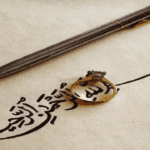Breaking the fast at sunset during Ramadan is a sacred ritual for Muslims around the world. As the call to Maghrib prayer resonates, it’s customary to commence the iftar meal with a special prayer known as “dua for iftar.” In this article, we delve into the spiritual significance, traditional and personalized duas, the power of intentions, effective practices, and much more.
Contents
- 1 Importance of Iftar Dua
- 2 Iftar ki Dua
- 3 Traditional Iftar Duas
- 4 Personalized Iftar Duas
- 5 The Power of Intentions
- 6 Steps to Make Iftar Duas Effective
- 7 The Role of Gratitude
- 8 Building a Routine
- 9 Common Misconceptions
- 10 Scientific Perspectives
- 11 Stories of Impact
- 12 Dua for Iftar and Health
- 13 Combining Traditions
- 14 Making Duas with Children
- 15 Conclusion
- 16 FAQs
Importance of Iftar Dua
In the Islamic tradition, iftar is more than just a meal; it’s a moment of profound spiritual connection. The dua for iftar holds immense importance as it symbolizes gratitude for the sustenance received and acknowledges the divine blessings bestowed upon the believers during the day-long fast.
Iftar ki Dua
اَللّٰهُمَّ اِنِّی لَکَ صُمْتُ وَبِکَ اٰمَنْتُ وَعَلَيْکَ تَوَکَّلْتُ وَعَلٰی رِزْقِکَ اَفْطَرْتُ
O Allah! I fasted for you and I believe in you and I put my trust in You and I break my fast with your sustenance.
In Hindi: ओ अल्लाह! मैंने आपके लिए उपवास किया है और मैं आप पर विश्वास करता हूं और मैंने आप पर भरोसा किया है और मैं आपके भोजन से अपना उपवास तोड़ता हूं।

Traditional Iftar Duas
Drawing from centuries-old practices, various traditional iftar duas exist, each with its unique beauty and significance. From “Allahumma inni laka sumtu” to “Allahumma ati nafsi taqwaaha,” these prayers have been uttered by generations, creating a timeless connection between the faithful and the divine.
Personalized Iftar Duas
While traditional duas offer a profound connection, personalized duas add an intimate touch to the spiritual practice. Expressing one’s desires, hopes, and gratitude in a personal dua enhances the emotional engagement during iftar, fostering a deeper connection with the divine.
The Power of Intentions
Central to any dua is the intention behind it. Exploring the significance of sincere intentions during iftar duas, this section emphasizes the transformative power of aligning one’s heart and mind with the spiritual purpose, creating a meaningful and authentic prayer experience.
Steps to Make Iftar Duas Effective
Crafting effective iftar duas involves more than just uttering words. This section provides practical steps to create an environment conducive to spiritual connection, including choosing a quiet place, focusing on the present moment, and maintaining a positive mindset.
The Role of Gratitude
Gratitude is the heartbeat of spiritual practices. Unpacking the importance of expressing gratitude during iftar, this section explores how cultivating a thankful heart enhances the spiritual experience and fosters a sense of contentment and humility.
Building a Routine
Incorporating iftar duas into daily life extends the spiritual practice beyond Ramadan. This section guides readers on building a routine that includes regular dua, emphasizing consistency in nurturing a strong spiritual connection.
Common Misconceptions
Addressing misconceptions surrounding iftar duas, this section clarifies doubts and highlights the simplicity of the practice. From concerns about recitation accuracy to the notion of specific timing, understanding these common misconceptions encourages a more open and genuine approach to dua.
Scientific Perspectives
Beyond the spiritual realm, science has shown the positive effects of prayer on mental well-being. This section explores the intersection of faith and science, shedding light on how iftar duas contribute to overall psychological health.
Stories of Impact
Personal stories have the power to inspire. In this section, we share anecdotes and experiences of individuals whose lives have been positively impacted by the practice of dua for iftar, showcasing the profound influence of this spiritual tradition.
Dua for Iftar and Health
Drawing a connection between spiritual practices and physical well-being, this section explores how the act of dua during iftar can contribute to a healthier lifestyle, promoting mindfulness and conscious eating.
Combining Traditions
Many cultures have unique traditions surrounding iftar. This section explores the harmonious integration of cultural practices with the spiritual act of dua, fostering unity and understanding among diverse communities.
Making Duas with Children
Engaging the whole family in the iftar dua ritual creates a nurturing environment. This section provides tips on involving children in the practice, making it a family affair that not only strengthens spiritual bonds but also passes down traditions to the next generation.
Conclusion
In conclusion, the dua for iftar is more than a ritual; it’s a transformative experience that bridges the gap between the physical and spiritual realms. Whether embracing traditional prayers or crafting personal ones, the essence lies in the sincerity of the connection established during this sacred moment.
Check Out:
FAQs
Q: Can I make my own dua for iftar?
A: Absolutely! Personalized duas add a special touch to the spiritual practice and enhance your connection with the divine.
Q: Is there a specific time for iftar duas?
A: While there’s no strict timing, making dua right before breaking your fast is a common practice.
Q: Can iftar duas be recited in any language?
A: Yes, you can recite iftar duas in any language you’re comfortable with. The sincerity of your intentions matters most.
Q: How can I involve my children in iftar duas?
A: Make it a family affair! Encourage your children to express their thoughts and feelings during dua time.
Q: Are there any recommended duas for specific intentions during iftar?
A: While traditional duas cover various aspects, feel free to formulate your own dua based on your specific intentions and desires.










